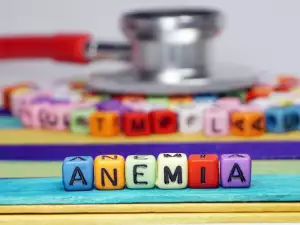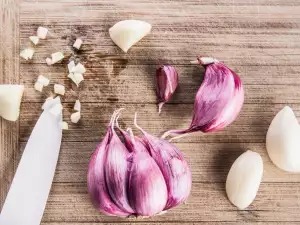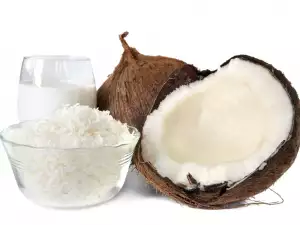Most people have experienced or at least seen the results of over-drinking, what we call a hangover. This severe state after heavy drinking requires effort to overcome and is accompanied by quite difficult to overcome conditions - nausea, vomiting, headache, general heaviness, exhaustion, and others.
There are all kinds of tricks for getting the body back to normal condition applied around the world, but first of all it is good to know what a hangover actually is and what bodily functions are triggered to occur.
Definition of hangover
The definition of the term is surprising to most people. A hangover is actually the body's natural defense reaction against the toxins in alcohol. It is about acetaldehyde, which is obtained as a result of the metabolism of alcohol. In high concentrations, this substance is toxic and then alcohol poisoning occurs, but in most cases such a result is not achieved.
When a hangover occurs, the body needs intoxication, which depends a lot on the amount of alcohol consumed, but light and moderate drinkers are more prone to hangovers than alcoholics.
Hangovers caused by alcoholic beverages
Although hangover is a condition very common around the world, there is little research dedicated to the condition. There are several theories as to why this condition occurs.
In the liver, alcohol is broken down into toxic acetaldehyde. An enzyme known as dehydrogenase converts it into the harmless acetic acid.
If the amount of alcohol consumed exceeds the ability of the body's enzymes to process it, acetaldehyde builds up in the body and causes headaches and nausea.
Some people have a reduced ability to break down acetaldehyde and this is responsible for the flushing that is often observed after significant alcohol intake.
Another popular theory is the so-called congeners. These ingredients are formed during fermentation and are present to varying degrees in different types of alcohol.
Dark alcohol is high in congeners. This includes red wine, whiskey, tequila. The congeners in them increase the frequency and severity of hangovers, which is significantly higher than low-congener alcoholic beverages such as vodka, gin, rum and others.
The role of immunity is relatively new. Research from 20 years ago concluded that people with hangovers have elevated levels of cytokines. These are the chemicals that the immune system makes to send signals between cells and to fight infections.
High levels of cytokines are precisely the cause of nausea, headaches and fatigue, as well as the impaired ability to create a memory.
There is still some research missing to pinpoint the causes of hangovers, but now science has a biological explanation for some of the symptoms. Here are the hangover symptoms.
Typical hangover symptoms

Headache
Alcohol suppresses vasopressin, which are antidiuretic hormones, or substances that normally help the body retain fluids. This is due to the constant need to go to the toilet.
There is a theory that dehydration causes a hangover, but science does not agree with this theory.
Research shows that the electrolyte levels in the body of people with a hangover, compared to those of sober people, do not differ as significantly.
In cases where differences are indeed observed, there is no direct relationship between the severity of symptoms and the levels of electrolytes or hormones in the blood.
However, dehydration is directly related to the excruciating hangover headache. When the body is deprived of fluids, blood vessels constrict as they try to maintain blood pressure.
This creates an unpleasant side effect consisting of a reduction in blood flow to the brain and dilation of blood vessels in the cerebral cortex.
The brain shrinks, pulls away from the skull and activates the pain receptors. A throbbing headache occurs. Dehydration is also the cause of the dry mouth that is familiar to every hangover.
Nausea
Alcohol irritates the stomach lining and increases the production of stomach acid, secretions from the pancreas and intestines. This leads to nausea, stomach pain and diarrhea.
Despite the bouts of vomiting, it doesn't help you get over the hangover, because the alcohol is in the blood, so you just have to wait it out.
Exhaustion
Alcohol has the property of suppressing the natural stimulant glutamine. When the a drunk person stops drinking, the body increases glutamine production and it stimulates the brain, preventing the drunk person from falling asleep.
Perhaps this is partly the cause of the bodily sufferings of binge drinking.
Alcohol consumption leads to a drop in blood sugar, which is expressed in exhaustion, depression and instability.
Hangover Tricks

All over the world, the fight against this condition is carried out by all sorts of means, some completely bizarre. Here's how different places around the world are dealing with this challenge.
How a hangover is treated in Australia
Australians most often use their established recipe in such cases with supplements rich in vitamin C and B vitamins. These are antioxidants that help the body fight.
How a hangover is treated in Germany
The Germans also have proven methods for quick recovery after binge drinking. They wrap pieces of marinated herring around small pickles with a slice of onion. Pickles are a type of fermented food and help restore normal electrolyte levels, which in turn reverse the effects of alcohol.
How a hangover is treated in Austria
In Austria, they bet on goulash. Warm soup with beef and lots of vegetables works wonders. Then a long rest is needed.
How a hangover is treated in China
Green tea has been a medicinal herb in Chinese medicine for over 4, 000 years. The drink also helps the body after drinking alcohol. 700 milliliters of nice green tea for a whole day will help with the hangover.
How a hangover is treated in the UK

The English people's favorite English breakfast - beans, fried bacon, stewed mushrooms, eggs and toast. They also rely on it for hangovers - see how English breakfast fights hangovers. Fats and carbohydrates in satisfactory quantities help them get back on their feet.
How a hangover is treated in France
The French have several tricks which they use to clean the consumed alcohol from the body with. Their options include French onion soup or cassoulet, which is cooked in a clay pot. It has beans, several different types of meats, sausage, garlic, onions, spices.
How a hangover is treated in the Netherlands
In the Netherlands, they also rely on pickles and marinated fish, but in large burgers with more sauce.
How a hangover is treated in Mexico
When they drink too much tequila, Mexicans save themselves with a salad, which literally means a return to life. Its ingredients are shrimp, onion, tomatoes, lime juice and hot pepper can be added.
Classic Hangover Relief Tricks
Liquids
Alcohol promotes urination. In the presence of diarrhea and vomiting, then dehydration is even greater. So a few glasses of water or juice will not be mandatory and of great importance for the body.
Carbohydrates
Drinking, accompanied by a refusal to eat, very often leads to a decrease in the blood sugar level, which in turn causes fatigue and headaches. A light breakfast with more carbohydrates and fresh orange juice are ideal for normalizing blood sugar levels.
Pain relievers
Pain relievers such as aspirin, ibuprofen and other non-steroidal anti-inflammatory drugs help with headaches but irritate the stomach. Paracetamol is not recommended due to the risk of a toxic effect on the liver as a result of the reaction with alcohol.
Sober broth

Sauerkraut juice and pickle juice, known as sober broth, are very effective remedies. Science doesn't say anything about these classic hangover remedies of ours, but since they're probiotics, they certainly help boost metabolism and possibly speed up recovery.
Repeated use of alcohol in the form of a bottle of beer does not help, but makes the hangover cyclical and it will return later and be even worse.




















Comments